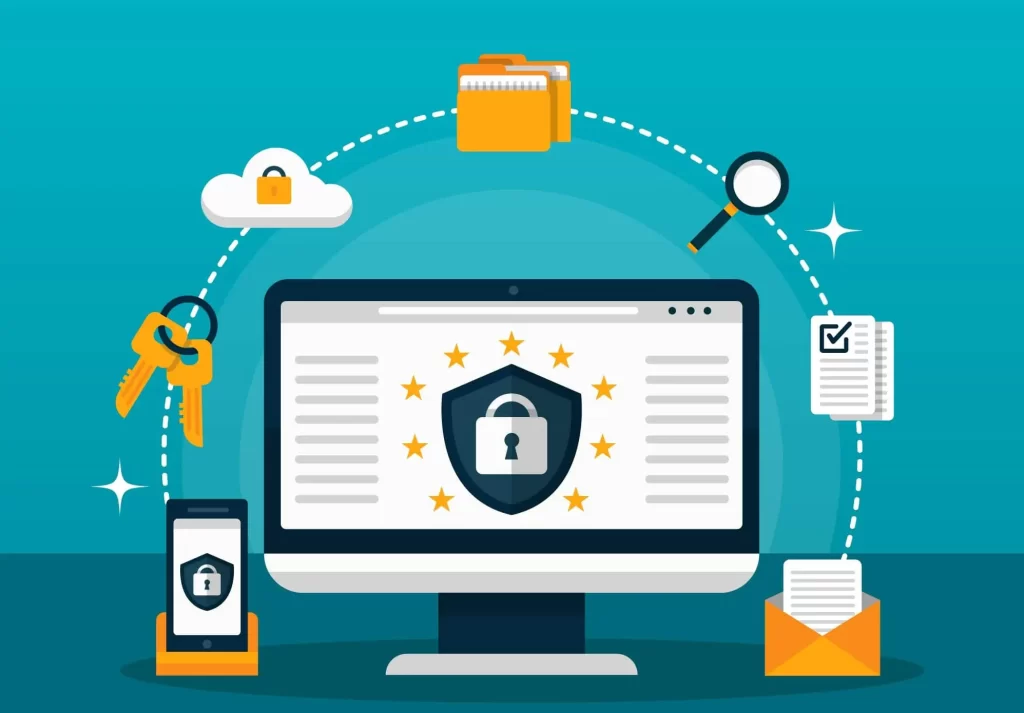-
By antonio-ingles
- In Uncategorized

In the digital age, protecting personal data is not only an ethical matter but also a legal obligation.
For small businesses in the United Kingdom, the General Data Protection Regulation (GDPR) sets out clear rules on how customer, employee, and supplier information must be handled.
What is the General Data Protection Regulation?
The GDPR came into force on May 25, 2018. Although it was a European regulation, it continues to apply in the UK post-Brexit through the UK GDPR and the DP Act 2018.
These regulations require all businesses, regardless of size, to take appropriate measures to ensure the privacy and security of personal data.
Tasks for the company to manage for their data protection
One of the first tasks small businesses must undertake is identifying what personal data they process. This may include names, addresses, emails, phone numbers, and even banking information. Once identified, it is necessary to establish the legal bases for processing, such as explicit consent or contractual necessity.
In addition, clear privacy policies and internal procedures must be implemented to handle data access, correction, or deletion requests. It is also essential to train staff in good data protection practices, as even a minor data breach can lead to legal consequences and damage the business’s reputation.
Moreover, companies must maintain a record of their data processing activities. This document not only helps comply with the GDPR but also facilitates internal risk assessments and enhances transparency with customers.
It is important to note that small businesses are not exempt from penalties. Fines for non-compliance can be significant, even for small operations. Therefore, it is advisable to conduct regular audits and stay up to date with any legislative changes in data protection.
A helpful tool is appointing a DPO, although it is not always mandatory. This professional can provide regulatory guidance, oversee processes, and act as a point of contact with regulatory authorities.
Finally, it is crucial to understand that its protection is not only about avoiding penalties but also about building trust. When customers see that a company values their privacy, they are more likely to share their information and establish long-term relationships.
In summary, GDPR compliance doesn’t have to be a burden for small businesses. With a proactive approach, proper organization, and training, compliance can become a competitive advantage.
Thus, protecting personal data becomes not only a legal duty but also an opportunity to strengthen customer relationships and stand out in the market.